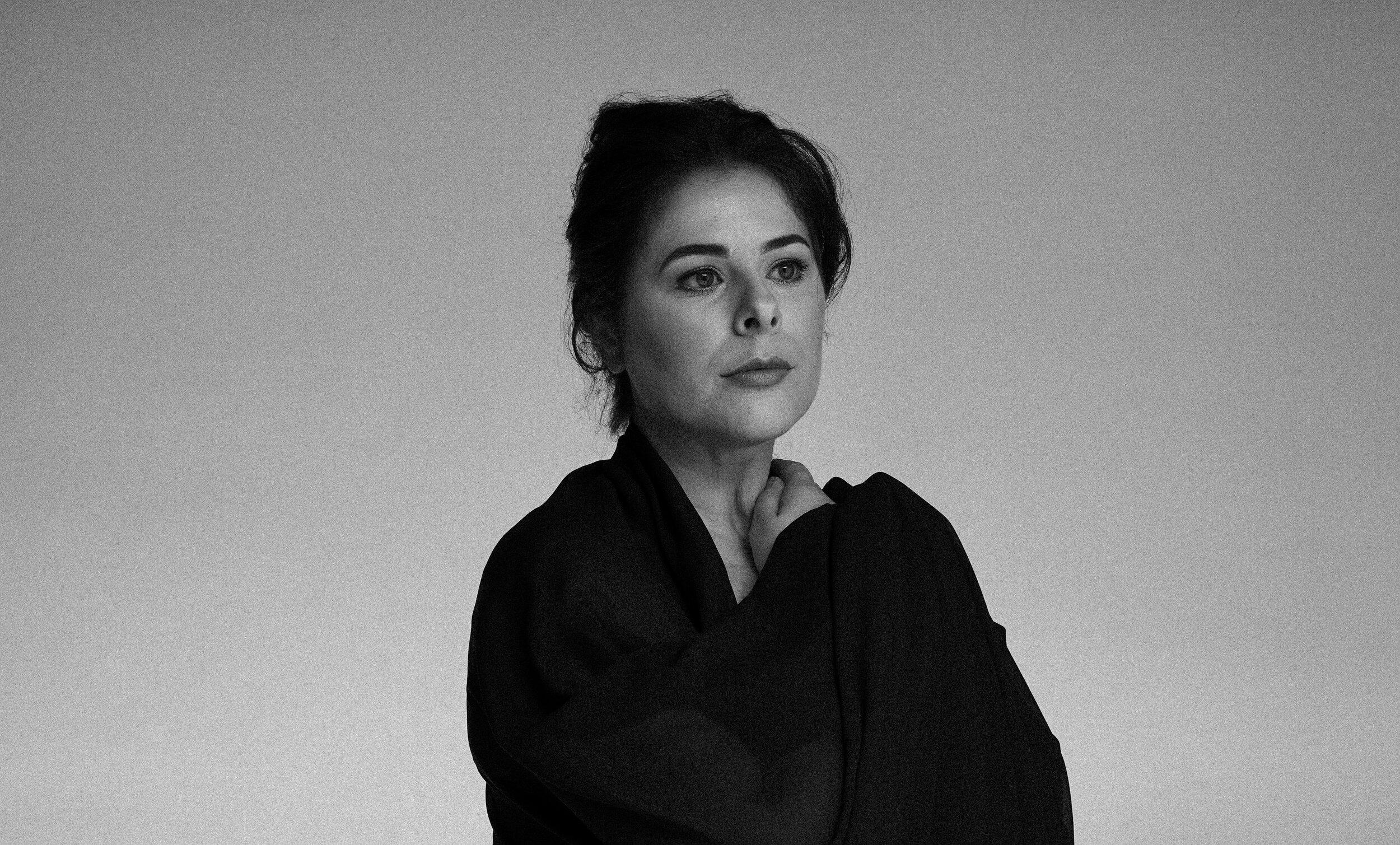Experimentelle und unbestimmte Lieder Op. 9
Release: Jan 05, 2017
We live in a world where silence has been lost. We live in the constant search for social acceptance, and our universe revolves around social networks. "How can we talk about what is happening today in the world, if we do not know what is happening within us?" We do not know our hearts, natures, and potential, and most of us are too afraid to confront our true selves. This work: Experiential and Indeterminate Songs, Op. 9 (Experimentelle und unbestimmte Lieder Op. 9) is a call to silence, to the exploration of our inner processes, and to the search for fullness.
Info:
Experimentelle und unbestimmte Lieder Op. 9
Artist:
Rachel Hippert (Soprano)
Julián De La Chica (Piano)
Composer:
Julián De La Chica
Lyric:
Julián De La Chica
Format: Album
Release: Jan 5, 2017
Catalogue: IGM-013
GTIN/EAN/UPC: 4050215231047
Producer: IGM
Tracks:
Experimentelle und unbestimmte Lieder op. 9
01. Präludium: (Aufruf) Gesegnete Dunkelheit
02. Schweigen
03. Unvollkommenheit
04. Freiheit
05. Bescheidenheit
06. Dunkle Nacht
07. Reinigung
08. Diskurs
09. Bewusstsein
10. Barmherzigkeit
11. Erfüllung
12. Epilog: Wir sind tot
Bonus Track
13. Präludium | Feat. María Clara Vargas Cullell
Soprano Rachel Hippert
Photo by Hassan Malik
Intro by Julián De La Chica
Experimentelle und unbestimmte Lieder Op. 9 (Experiential and Indeterminate Songs, op. 9) is a cycle for voice, piano, and synthesizer, inspired by reflections and experiences that I have had through the years, from which I began to consciously construct a spiritual interior life. I explore the sound of the interior voice that speaks to us in our daily intimacy, a voice that questions and challenges us. A voice that is conditioned by the world and its egos. The system.
Distanced from a religious vision, apologetic and ascetic, I work with processes that in my personal opinion have helped me in attaining self-knowledge, acceptance, and finally, plenitude. It is a method based in the Buddhist meditation Vipassana, whose process of self-purification is realized through self-observation.
I consider the search for individualism not from a moral egotist perspective but from the perspective that relates us with the collectivity that saturates and critiques. We know ourselves, re-cognize ourselves, re-discover ourselves when we decide to live freely. This brings us to a deep and raw understanding of our misery. We walk completely alone in the darkness. In the coherence of consciousness we define ourselves and evolve.
Rachel Hippert &
Julián De La Chica
Photo by Hassan Malik
Exploring the silence, a theme that composer John Cage questions and proposes in his work, is a process that I feel is necessary and vital in our existence and creative experience. In accordance with this reflection, minimalism, as a musical proposal, brings me closer to this experience. Discovering who we are, deciding to accept ourselves, and live in the plenitude of the coherence of consciousness that governs our actions and words is an ideal in the daily process of survival. The cultivation of the spirit invites us to traverse an intimate path in solitude that brings us the fullness of interior peace, a state that should not be confused with “false comfort” or a harmonious appearance that is governed by sociological protocols or canons.
The interior path, then, helps us to construct a global and objective vision of our being. It helps us in a concrete manner to endure situations and experiences, to never lose perspective, and in the final state, to experience peace, enjoyment, plenitude, including in the most vulnerable moments of our spirits, of our dark nights.
Behind the Scenes
the video
—
Don't miss the album recording's Behind the scenes and
the exclusive conversation with Soprano Rachel Hippert and watch
some of the most stunning moments of her performance.
Album Notes
“Minimalism means concentration” - Anton Batagov (2016)
“Remove, remove and remove until only the essential is left.” – Eduardo Chillida
How does Julián De La Chica materialize the question of “being” in sound? Through text and music as sound material: the choice of the German tongue as a philosophic language; in its sonority, the reference to the tradition of Lieder, a form where word and sound construct a system of meanings in search of the essential. Materializing it through sound, the works achieve this “concentration” of the essential, guided by the question of the “being.”
But, how do they achieve it? Long phrases, almost Gregorian rhythmicity, recuperate the capacity for enunciation born of medieval liturgical chant and Buddhist mantras. The concentration of power in the invoked words – to enunciate is to make real what is invoked. The essence is enunciated in the concept, in the construction of the enunciations that constitute the exoskeleton of these songs. The sound materializes the concept; it is sound that creates reality. The sound is in the center of the congealed hurricane. A person that asks the question of “being”, stops time. Their presence is now; only the now exists. That instant is nonetheless a whirlwind that in the meditative act stops in front of the asking person and contemplates their mortal state, unappealable: the state of mortality as illumination.
Soprano Rachel Hippert &
composer Julián De La Chica
Photo by Hassan Malik
Piano and synthesizer induce vision. The compositional technique of the author is almost sculptural, tuning in with Eduardo Chillida: “Remove, remove and remove until only the essential is left.” In this way, it achieves what Anton Batagov (2016) summarizes in a sentence: “Minimalism means concentration.”
Rachel Hippert weaves an ontological experience with her voice. The soprano understands the underlying magma underneath the Gregorian tradition, mantra, and Lieder at the conceptual level. Her work is rigorous, contained and subtle. The dissonance between her voice and the sculptural piano and synthesizer can materialize flashes of something seen for only a moment.
The voice is a hologram of the sonic imagination, of the intellectual process of Rachel Hippert. “The quiet and still persists," Mr. Chillida wrote. In times like ours, where speed and media urgency seem to demarcate thought and creation, she stops, and with her voice, shows the density of space. Ms. Hippert seems to explore the quality that Mr. Chillida imagined in his sculptures: “I want my works to be still and quiet, the only way of escaping in part the influence of time.”
Susan Campos - Fonseca, PhD
Musicologist and composer
Soprano Rachel Hippert
Photo by Hassan Malik
Rachel Hippert is charged with personifying “the wanderer” that in her dark night and her silence, confronts her fears, her lies, her truths, and her ego. Subtly, Ms. Hippert confronts the void of nothing, of the unnecessary, to become the protagonist that risks everything”
— Julián De La Chica
Rachel Hippert:
"Bewusstsein" (Consciousness)
Official video
Credits
Produced by Irreverence Group Music (IGM)
Music & lyric by Julián De La Chica
Rachel Hippert - Soprano
Julián De La Chica - piano & synthesizer
Recorded, Mixed, and Mastered by Greg DiCrosta
at Firehouse 12, New Haven, CT
Performed on Steinway “D” Hamburg (CD-79)
Piano Technician: Timothy J. Robinson
Program Notes by Susan Campos - Fonseca
Cover design by Lina Gracia.
Photography by Hassan Malik
Video by Kevin Van Witt
Executive producers for IGM
Miguel Mourato Gordo and Julián De La Chica
Julián De La Chica’s music is published
by Vagabundo Music Publishing, Inc.(BMI)
Manufactured and marketed by
Irreverence Group Music (Brooklyn, NY)
Made in US. Total time: 54 min
Ⓟ and Ⓒ 2016 IGM






